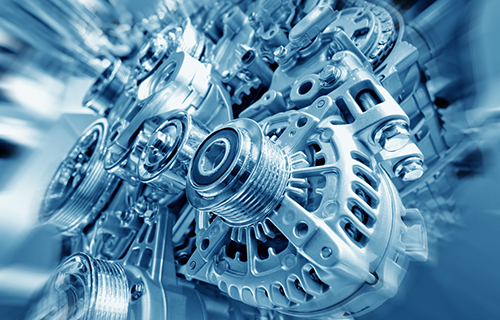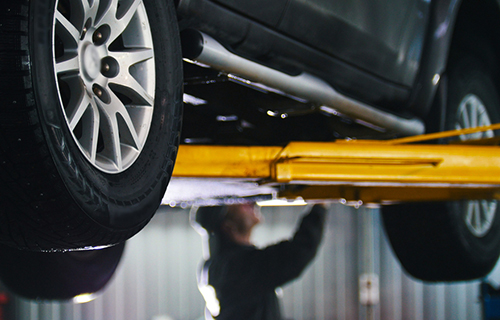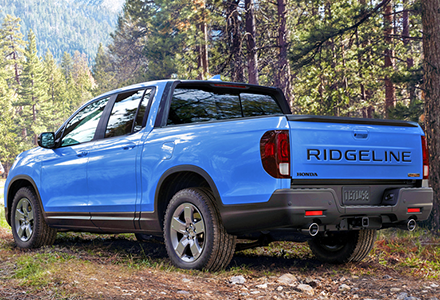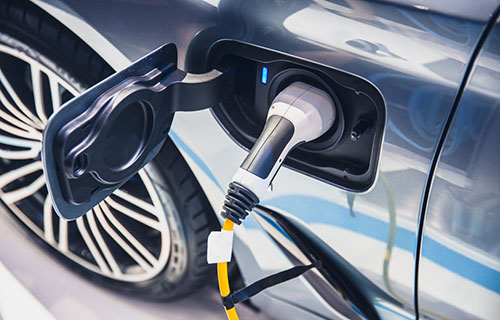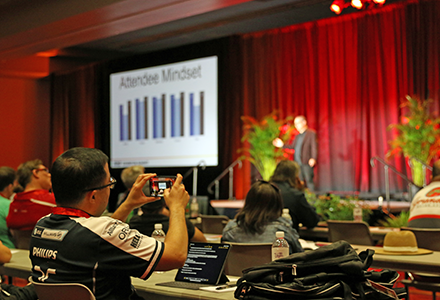
By the SEMA Washington, D.C., office
After advocacy from small businesses across the country that represent the specialty automotive aftermarket and other key stakeholders, the U.S. Environmental Protection Agency (EPA) is delaying its most aggressive tailpipe emissions-reduction requirements from model-year '27 to model-year '30. The EPA's final rule also slightly increased the average tailpipe emissions for light-duty vehicles, increasing the standard to 85 grams/mile from 82 grams/mile for model-year '32.
While the agency's final rulemaking provides automakers with additional time to ramp up production of zero-emissions vehicles (ZEVs), currently, only electric vehicles (EVs) and five plug-in hybrid electric vehicles (PHEV) meet the easier 85 grams/mile standard. It is estimated that 67% of new vehicles sold would have to be EVs by 2032 to meet this standard. Automakers could also comply with the final rule if EVs account for 56% of new vehicle sales and PHEVs comprise 13% of model-year '32 sales. SEMA opposes the EPA's final standards for the model-year '27 to '32 light- and medium-duty vehicles, which ultimately still force automakers to sell EVs and PHEVs to comply with this rulemaking and further limits internal combustion engine (ICE) technology options.
The EPA's final rulemaking embraces "Alternative 3" from the agency's April 2023 proposed rulemaking. The chart below outlines the emissions reductions in the final rulemaking vs. those outlined in the agency's initial preferred proposal:
| EPA Proposed Rulemaking |
EPA Adopted Rule |
| 2027: Required automakers to reduce fleetwide emissions by 18% vs. 2026 |
2027: Requires automakers to reduce fleetwide emissions by 9% vs. 2026 |
| 2029: Reduce fleetwide emissions by 40% vs. 2026 |
2029: Reduce fleetwide emissions by 27% vs. 2026 |
| 2032: Reduce fleetwide emissions by nearly 56% vs. 2026 |
2032: Reduce fleetwide emissions by 50% vs. 2026 |
In response to the EPA's final rulemaking, SEMA President and CEO Mike Spagnola said, "The EPA has taken a small step in the right direction by providing automakers and specialty aftermarket businesses additional time to develop innovative solutions to reduce emissions. While I am proud of our industry's role in helping to delay the EPA's most aggressive EV mandates, there is still much work to do to get government regulators to embrace technology-neutral solutions that will reduce emissions while limiting adverse impacts on small businesses and consumer choice."
"SEMA has long advocated that government mandates, including those designed to support the sale of EVs and eliminate the sale of ICE vehicles, are the wrong approach to reducing motor-vehicle emissions. The federal government and states should take an 'all of the above' approach to vehicle technology, incentivize innovation and allow the market to determine the best ways to reach improved emissions goals," noted Spagnola.
SEMA, its members and car enthusiasts across the country were vocal in opposing the EPA's initial rule after it was proposed in April 2023. More than 7,500 SEMA members and automotive enthusiasts wrote to the EPA last year in opposition to the then-proposed rulemaking's efforts to effectively mandate the production and sale of EVs.
The EPA's final multipollutant regulation will create a seismic shift in the automotive industry. Small, independent businesses, including aftermarket parts manufacturers, retailers, distributors, installers, and even local repair businesses, will be adversely impacted if this rulemaking, which is expected to face legal challenges, is implemented. Notably, one-third of consumer spending on performance and accessory products goes toward upgrading ICE vehicles and drivetrains, and 25% of SEMA manufacturers produce ICE-related components. This final rule will reduce consumer choice and increase the costs of purchasing new vehicles. It will also disrupt the used-car market as used ICE engine vehicle inventory will begin to decline, thus increasing prices and making it less affordable for those who need the used-vehicle market for its typical affordability and accessibility.
Specialty automotive aftermarket businesses continue to lead the way with innovative solutions to reduce vehicle emissions. Aftermarket manufacturers are at the forefront of adapting ICE technologies to run alternative fuels and converting older vehicles into cleaner technologies. The EPA's regulation embraces a strategy that favors one technology solution at the expense of thousands of small businesses and hundreds of thousands of workers across the country.
